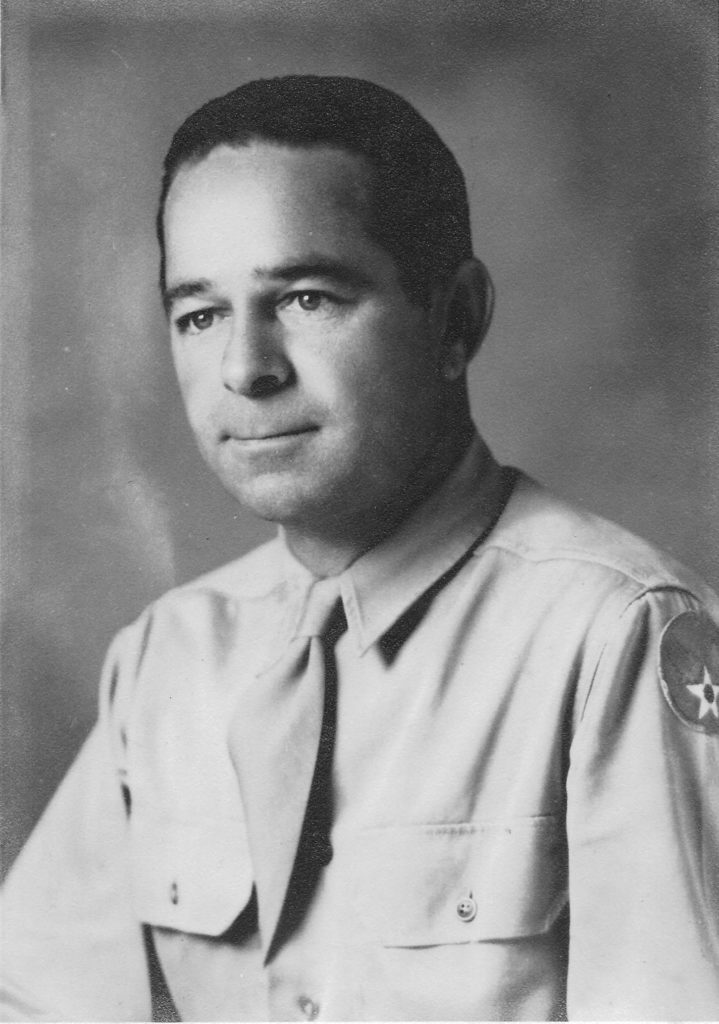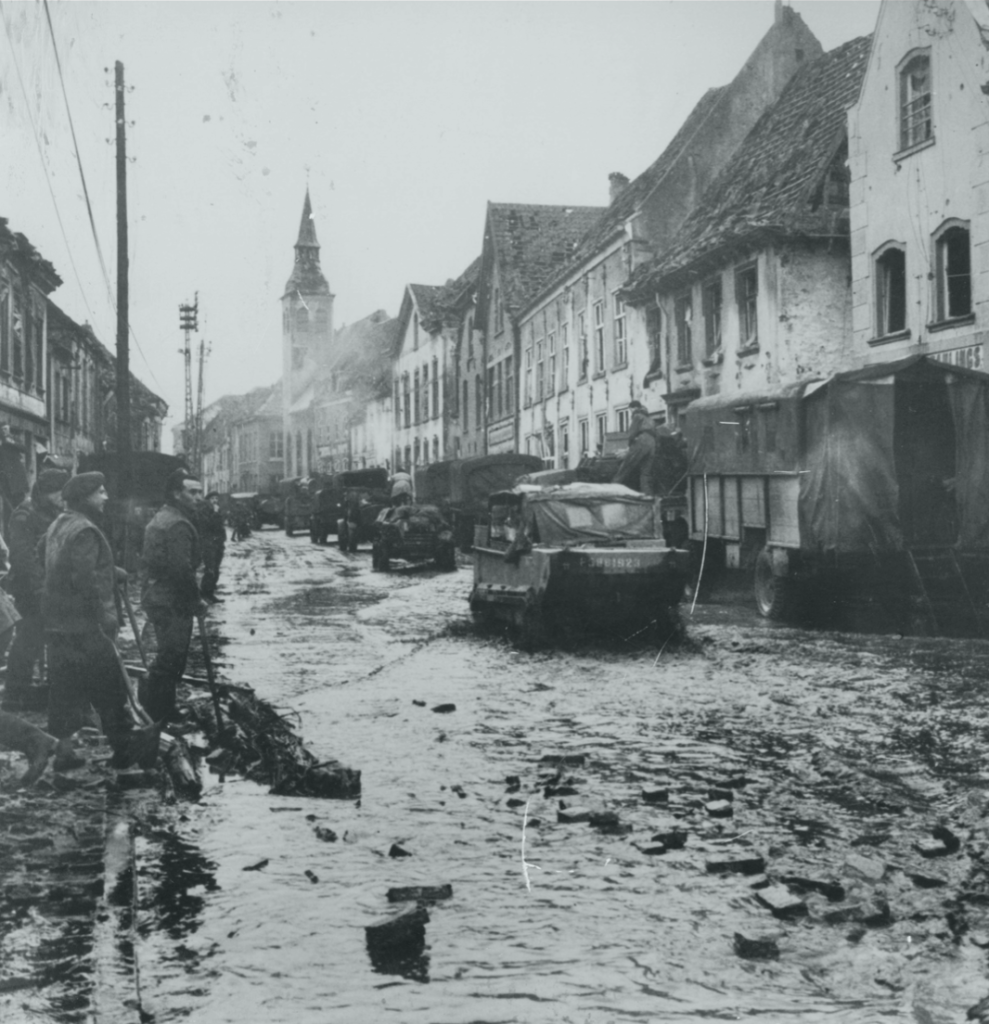- Klever Str. 4, 47559 Kranenburg, Germany
On 17 September 1944, two crew members of a downed American transport plane were captured in Wyler and moved to Kranenburg. In front of the town hall, they encountered a group of uniformed men, including 35-year-old Sturmabteilung officer Ludwig Klüttgen. Although the prisoners had their arms crossed behind their heads, Klüttgen drew his weapon and fired at both soldiers successively. The first died immediately. The second was killed a little later.
There is a lot of information about the circumstances of this crime because the Public Prosecutor’s Office in Kleve immediately launched a preliminary investigation and interrogated witnesses. The public prosecutor tried to hold the perpetrator accountable, but ‘orders from higher up’ prevented Klüttgen from being arrested.
The Klüttgen case was not unique. It was part of a phenomenon deliberately initiated by the National Socialist regime. Historical research today assumes that hundreds of pilots were lynched. With the ratification of the Geneva Conventions in 1929, the German Empire had agreed to treat prisoners of war from the signatory states with dignity and to protect them, in particular, from violence, insults and public curiosity. Acts of retribution were strictly prohibited. However, in the summer of 1943, the summit of the National Socialist regime began an incisive propaganda campaign: “a feigned, morally justified revenge by the German people for the towns that were destroyed and the relatives who died in the firestorm.” It primarily targeted the crews of Allied aircraft, which the National Socialists called ‘terror pilots’. They lost the status of protected prisoners of war. Later on, paratroopers who entered German territory by air met the same fate. The Reich Chancellery, together with Joseph Goebbels were particularly involved in fanning the flames.
This paved the way for these crimes, which, though not directly recommended by the National Socialist regime, were supported. Understandably, the murders of allied soldiers were among the crimes first dealt with in a court hearing immediately after the war.
The Americans and British launched the first trials as early as the summer of 1945. More than 200 public hearings of the US military court-martial were held in Dachau—known as the ‘Flieger Prozessen’. Ludwig Klüttgen was also among the accused. On 12 August 1947, he was sentenced to death. His sentence was carried out on 29 October 1948 in the prison for war criminals in Landsberg am Lech.


